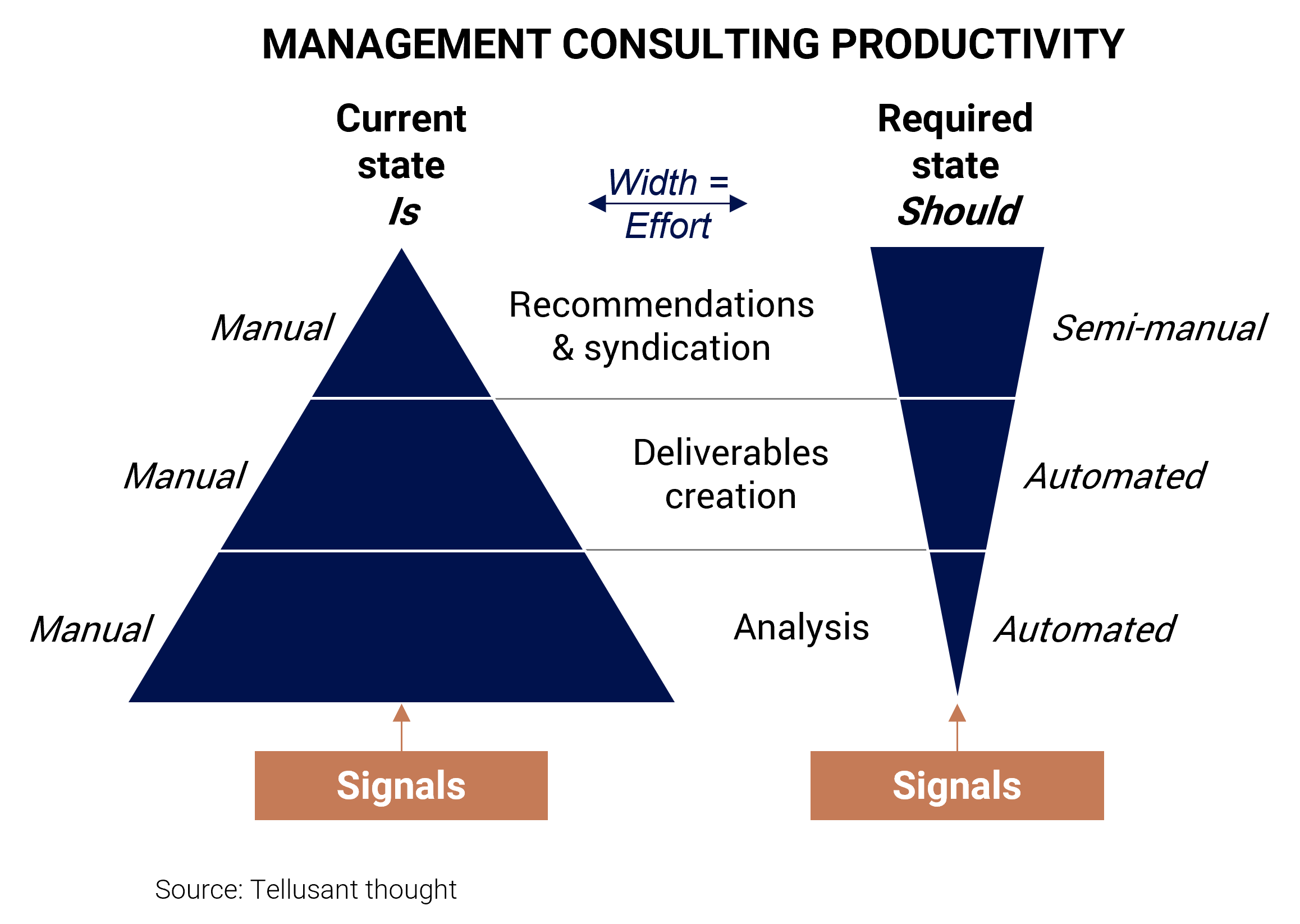There is a sad state of affairs at the large management consulting firms — MBB¹. Not the quality of deliverables. The lack of productivity is the issue.
One of our principals was a partner at an MBB firm and has worked in parallel with all three over the past decades. He is not impressed by how they create their deliverables. Methods are largely stuck in the 20th century. Most work is manual with Excel-PowerPoint-email. The level of automation is low. When exposed to their internal processes, they look dysfunctional.
This is borne out by the numbers. All three have declining revenue per employee² over the past decade.
The graph illustrates the point.

The current state is highly manual and there are vast (junior and mid-level) resources dedicated to analyses and to creating deliverables. This is the is-value.³
What should have happened is extensive automation of the analyses and deliverable creation layers. This is the should-value.³
That the recommendations and syndication step is mostly manual is understandable. This is where the dialogue with senior client executives take place, and it is a deeply human endeavor. But perhaps some automation here as well?
Why are things like this? Inertia and governance model. You do not become a partner by being good at automation. We posit that senior partners do not even grasp what the automation opportunities are.
Also, the partnership model is against automation. It works when you have high leverage (the ratio of partners to non-partners) and low fixed cost. But the automated approach requires investment in fixed cost. Public stock companies are much better at handling this than partnerships.
How can this be changed? We do not think it could or should. Instead, startups will automate aspects of what MBB do and slowly replace them. It is easier to create change afresh than to modify existing behaviors. Creative destruction.
Given this, there are some good news for the MBB.
First, they clearly add tremendous value. The substance of what they deliver is excellent as evidenced by their growth.
Second, they can probably source the automation from experts and maintain the high-value recommendation and synthesis activities. Third, the decline will be slow since clients are not exerting pressure on them to change.
